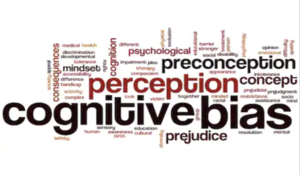Cognitive Biases: Causes, Effects, and Implications for Effective Messaging

Authors: Dr. Sabrina Polansky (Pagano) (NSI, Inc.) and Tom Rieger . (NSI, Inc.)
Quick Look Preview
This report supported SMA’s Integrating Information in Joint Operations (IIJO) project. For additional speaker sessions and project publications, please visit the IIJO project page.
In the current environment of contested norms, increasing great power competition, and rapid technological change, protecting and furthering US interests requires the ability to compete effectively in the information environment (IE). In recent years, the IE has seen the proliferation of actors, channels of communication, and messages. To compete in this crowded and contested environment, we must be able to communicate effectively. Yet, the IE is complicated, available information is often vast and imperfect, time is constrained, and additionally, we are limited by our own cognitive capacity.
Humans have developed several adaptations to address these cognitive limitations, including heuristics and other mental shortcuts that facilitate survival by enabling more efficient processing of information from the environment. Unfortunately, these same shortcuts hardwire biases into our thinking and communication, which render messaging efforts ineffective and open to manipulation by adversaries seeking to mislead or confuse. These cognitive biases can lead to inaccurate judgments and poor decision- making that could trigger either unintended escalation or failures to identify threats in a timely manner. Understanding sources and types of cognitive bias can help minimize miscommunication and inform development of better strategies for responding to adversary attempts to leverage these biases to their advantage.
Download Publication
This report supported SMA’s Integrating Information in Joint Operations (IIJO) project. For additional speaker sessions and project publications, please visit the IIJO project page.
Comments